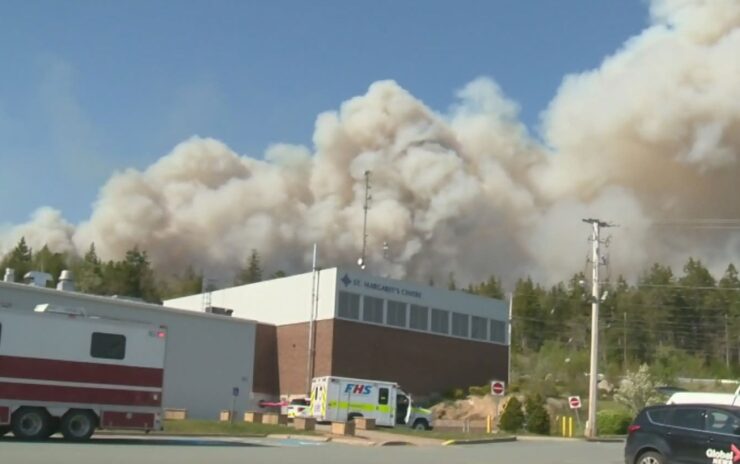When you’re looking for the comprehensive vehicle insurance in Nova Scotia, shop the company with 9 handy locations across the province: MacLeod Lorway. Our insurance products have pleased customers since 1976, when we became a major player in the Canadian insurance industry.
We work hard to get you the individualized vehicle insurance you need at the best price for every vehicle you own, whether it’s simply the car or truck you drive to work or an RV. We insure ATVs and motorcycles, as well, giving you the peace of mind you deserve.
When searching for what auto insurance is right for you, it’s easy to underestimate the amount and complexity of work required. Choosing the right plan isn’t as simple as going for the least expensive option. Choosing the right plan also involves answering some difficult questions.
- Does coverage extend to accident write-offs?
- How high should my liability coverage be?
- My car isn’t new; can it still be covered?
Your life is dynamic, your needs are unique, and at MacLeod Lorway, we understand that. That’s why we have a dedicated team of professionals to help find what plan fits your needs, and to find solutions for any question you may have. Your car is a valuable asset in your life. Why roll the dice with online insurance, when MacLeod Lorway can help you succeed. Get a free quote today!
Getting truck insurance in Nova Scotia is different from insuring your personal vehicle for many reasons. You’ll pay more to insure your truck because it surely would cause greater damage in an accident than would a small car, leading to higher cleanup costs. Your truck or SUV probably has a higher centre of gravity than a smaller vehicle, making it more prone to roll over. Features found in trucks, like 4-wheel-drive, are more expensive to fix than simpler vehicles, and trucks are stolen more often than cars.
The type and primary usage of the vehicle also affects insurance prices. Our agents will ask you whether you need to insure your personal vehicle or a commercial truck, which will typically cost more. Commercial trucks have a greater risk of accidents because they travel more. Also, if you haul goods in your truck, are the goods flammable or dangerous? If so, the insurance may be more expensive.
That’s why trucks and SUVs are more costly to insure than a small sedan. It’s also why truck drivers in Nova Scotia love insurance agents such as the ones you’ll find at MacLeod Lorway – we’ll work with you to find the most affordable rates possible on your truck insurance while providing you with the coverage your vehicle requires. Get a free quote on your truck insurance today.
Whether or not you realize it, if you operate an ATV, you are required to carry ATV insurance. Areas of Nova Scotia have mandatory insurance laws pertaining to ATVs and other recreational vehicles such as snowmobiles. This requirement is called “Public Liability and Property Damage” (PLPD), and you need to comply with it in order to satisfy the law. If you operate off-highway vehicles on land you do not own or occupy, you are required to carry coverage including third-party liability, accidental benefits and uninsured/under-insured protection.
Fortunately, MacLeod Lorway can provide all the insurance coverage you need at an affordable price. When you request your free quote, our knowledgeable staff will discuss with you your insurance needs and how we can meet them without selling you more products than you need. By keeping it simple, we get you the appropriate insurance coverage at the best possible price.
If you are looking for snowmobile or ATV insurance, consult with our experienced brokers who work hard to find the personalized solution you deserve. Get a free quote today!
Whether you’re new to driving or feel like an old pro, winter brings a number of intimidating hazards. The East Coast has already seen a few storms, and with those our fair share of accidents. Make sure you’re prepared with some of our top tips for winter driving below.
Drive according to the weather.
It might go without saying, but the key to winter driving is to drive for the conditions! Regardless of how confident you feel driving in the snow, the conditions outside and the experience of the other drivers around you are constantly changing. Be ready and aware. Don’t tailgate – ever, but especially not when the roads are slick and wet. You should plan to take a little extra time to get places, and if possible, plan to drive during the daylight hours.
Prepare your vehicle for winter.
Winter tires are a must. Full stop. The reality is Nova Scotian weather shifts from one minute to the next. You don’t want to be skating on used all-seasons when unexpected hail surprises you on the drive home. Keep an emergency kit in your car that includes these following essentials:
- warm blanket(s)
- extra layers (especially for your extremities, think, wool socks, gloves/mittens, hats, etc…)
- first aid kit
- non-perishable snacks and bottled water
- ice scraper and a small shovel
- flashlight
- battery-pack (for charging your phone, if needed)
- sand or cat litter (for traction if your tires are slipping).
How to predict black ice.
Black ice is the bane of our winters. Drivers and pedestrians alike have skidded and slipped because of this chameleon-like hazard. It can be tough to spot black ice before it’s too late. Black ice typically forms overnight but can be found in shaded patches – even at noon. Take a look at the road before you get in the car. If everything is generally dry except for patches, consider those suspicious. If you do hit black ice, treat it like hydroplaning. Remain calm and pass over the ice before steering away from any obstacles.
Despite the best prevention, accidents can still happen. Make sure that you have the insurance coverage right for you and your vehicle. Get in touch with the MacLeod Lorway branch nearest you to learn more about your auto insurance options.
Looking for trustworthy RV insurance? Stop and get a free quote on RV insurance from MacLeod Lorway, Nova Scotia’s vehicle insurance company. Our friendly, knowledgeable agents will take careful note of your needs and provide you with the specific insurance all RV owners are legally required to carry in this province. The types of mandatory coverage you need to have are:
- Third-party liability – protects you in the event your vehicle damages property or when an accident causes injury or death to others.
- Uninsured and unidentified vehicle – you are covered for losses when vehicle damage, personal injury or death has been caused by an uninsured driver or by an unidentified vehicle (other driver flees the scene).
- Accident benefits – provides coverage for such expenses as medical or rehabilitation costs, loss of employment income, funeral expenses.
So go ahead; clear your mind when you’re on vacation. Don’t worry about what could happen if an accident or damage to your RV occurs. Rest easy realizing that you’re covered with the exact RV insurance product you need in order to relax and rejuvenate in your home-away-from-home.
Whether your motorcycle is a modest machine or a large touring bike, you’ll need adequate motorcycle insurance in order to legally strike out on those scenic Nova Scotia roads. Before you head out on the highway, talk to MacLeod Lorway about a free quote on motorcycle insurance.
Here at MacLeod Lorway, we really listen to you. That’s how we can provide a customized policy that provides the coverage you need while remaining affordable enough to leave you with a healthy vacation fund. With 9 locations, we have agents in every part of Nova Scotia.
Nova Scotia is a beautiful province with so many things to do and see. Beaches, coastal drives, hiking trails and towns are dotted across the map – and because of just how much wide-open space we have, it’s much easier to make the most of it with a car. But, before you hit the road, how do you choose your auto insurance policy? There are a few things to consider:
It’s necessary.
First off, having the base amount of insurance is a requirement in Nova Scotia – no exceptions. There are hefty fines and repercussions for not carrying valid auto insurance, so skimping out could cost you a lot more in the long-term.
How much does it cost?
That said, from gas to car payments to insurance, the costs of having a car add up. It might be tempting to cut corners where you can, but insurance is the only way to protect yourself, others, and the investment you’ve made in your vehicle. The cost of your insurance will vary depending on your driving history, the make and model of your car, where you live, how often you drive, your coverage and other factors.
For the best possible rate on your insurance, there are a few things you can do to keep your premiums down. By always paying your premiums on time, maintaining a good driving history, choosing a vehicle with safety and security features, or taking a safety course, you can prevent unexpected increases.
How much coverage do you need?
And while the cost is one deciding factor, another thing to consider is how much coverage you actually need. The minimum requirement in Nova Scotia is $500,000 in third-party liability insurance, but this doesn’t help cover any damages done to you or your own car if you cause an accident. You’ll need more than the bare minimum if you want to protect your own property and assets.
To ensure you’re protected, a MacLeod Lorway advisor can help you determine exactly how much coverage you need.
Auto insurance may seem complex, but there are some essential rules that apply to almost all policies. Here are the basics of what you need to know better understand your auto insurance policy:
Your deductible affects your premium.
Your deductible is the amount you’ll have to pay out-of-pocket if you file a claim. For example, let’s say your deductible is $1000 and you’re involved in an accident that causes $2000 worth of damage. This means you’ll pay $1000 and your insurance will cover the remaining $1000. Typically, a higher deductible will mean you’ll pay lower premiums since you’re taking on greater financial responsibility.
Your driving record matters.
The most straightforward way to keep your premiums low is to maintain a perfect driving record; driving safely and defensively will help keep your record clean. When determining your premium, insurers will take into account the number of accidents you’ve had, any tickets or driving infractions, the number of years you’ve been driving (and how long you’ve been insured), and the number of drivers who will be driving your car as well as their driving records. If your driving record has taken a few hits, it may be worth considering taking a defensive driving course. Not only will it help you drive safer, it can also help lower your premiums.
You can let someone else drive your car – but you’re assuming responsibility for their driving.
Provided your friend or family member has a valid driver’s license, your insurance will cover them if they drive your car. However, if they cause an accident, it will likely impact your premium just the same as if you were driving.
Third-party liability insurance is mandatory.
In order to drive, you need third-party liability insurance. Third-party liability insurance covers damages for which you’re at fault. For example, repairs to other vehicles or property you may have damaged, medical costs if you’ve injured someone, and even legal fees related to an accident you have caused. The mandatory amount of coverage in Nova Scotia is set at $500,000, but it’s recommended you increase your coverage.
Beyond these basics, a MacLeod Lorway broker can help you determine the right auto insurance for you. Talk to us today for personalized coverage and advice.
We make insurance personalized
We consider your wants and needs to make sure you get the coverage that makes sense for you.
Coverage. Care. Commitment.
"I love finding the best price and coverage for my clients."

Amber Prince
Customer Delivery Specialist,Sydney


